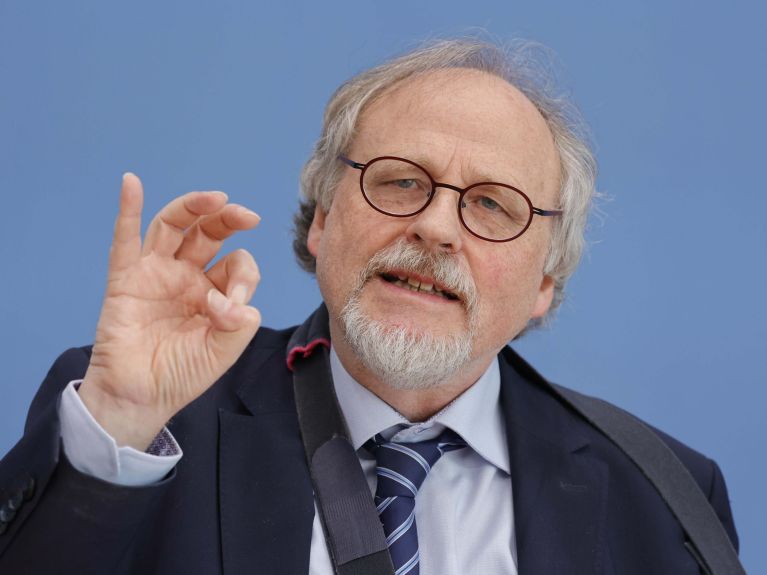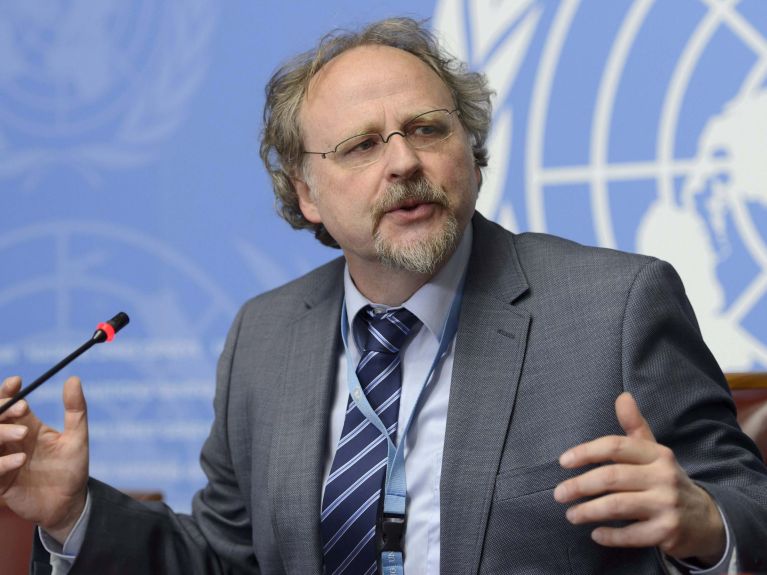“The freedom of religion is essential to human dignity”
The human rights expert Heiner Bielefeldt explains why the freedom of religion is so important and why it is often misunderstood.

The freedom of religion is one of the human rights enshrined in international law. Germany’s Basic Law includes it as a fundamental right. Professor Heiner Bielefeldt holds the chair of human rights and human rights policy at Friedrich-Alexander-Universität Erlangen-Nürnberg. His research interests include the freedom of religion. The philosopher, theologian and historian served as the UN Special Rapporteur on freedom of religion or belief from 2010 to 2016.
Professor Bielefeldt, what does it mean for the freedom of religion to be enshrined as a fundamental right in the German constitution?
The Basic Law’s acknowledgement of human dignity manifests itself in many different fundamental rights, not least the freedom of religion, which affirms that people hold beliefs which shape their identities and that they can live by those convictions. The freedom of religion essential to human dignity. However, what that actually means in a country can only be seen in case law. In Germany, the rulings of the Federal Constitutional Court promote a very open and broad understanding of the freedom of religion.
How important is social acceptance of the freedom of religion?
Understanding of the purpose and meaning of this human rights is waning in some areas. For example, I am often asked if the freedom of religion is anachronistic and irrelevant today, and if it contradicts other human rights such as gender equality. Some people think it is redundant because it is essentially already guaranteed by the freedoms of speech and of assembly.
However, these ideas fundamentally misunderstand the freedom of religion. It guarantees that people can arrange their lives according to their beliefs. It’s not, for example, about having an opinion about headscarves: it’s about actually being able to wear one. The freedom of religion also includes the freedom of beliefs, and in my view it is hugely beneficial to pluralistic societies.
The freedom of religion guarantees that people can arrange their lives according to their beliefs.
Where do you see this benefit?
The freedom of religion makes it possible to live together productively within a plurality of beliefs. It also transcends all different religions and beliefs by standing as a sign that people recognise and respect others’ dignity and beliefs. For me, it represents the most credible model for ordering pluralistic societies.
Does that mean the freedom of religion allows us to gauge whether human rights are upheld in a country?
Yes, absolutely. The connection between the freedom of religion and other human rights isn’t just an abstract idea: you can see it quite clearly. For example, freedom of religion is always linked to whether a country upholds the rule of law, such as in access to independent courts. Its link to freedoms of speech is obvious, too.
All human rights provide mutual support one for another. That’s why as the United Nations Special Rapporteur on freedom of religion or belief, I always took a holistic view of the whole human rights situation in a country. Looking at the freedom of religion also included the rights of minorities, for example, freedom of the press and children’s rights.

Can the freedom of religion help strengthen human rights in general?
It’s not always the case that all religious communities are in favour of the freedom of religion, but they feel differently when their own rights are concerned. As such these communities can offer a way in to take a view of human rights as a whole. Applying human rights always involves making connections and forging creative alliances.
What role can the freedom of religion and belief play in development policy?
On the one hand it’s worth making the most of opportunities for collaborating with religious communities. Doing this often allows you to reach groups you could not reach at all from a state level. I can see great potential in that. At the same time, you naturally always need to ask yourself who you’re talking to. You need to look critically whether a collaboration could reinforce existing power structures, for example. However, at heart the freedom of religion always helps you keep people in view at all times and take their beliefs seriously.


